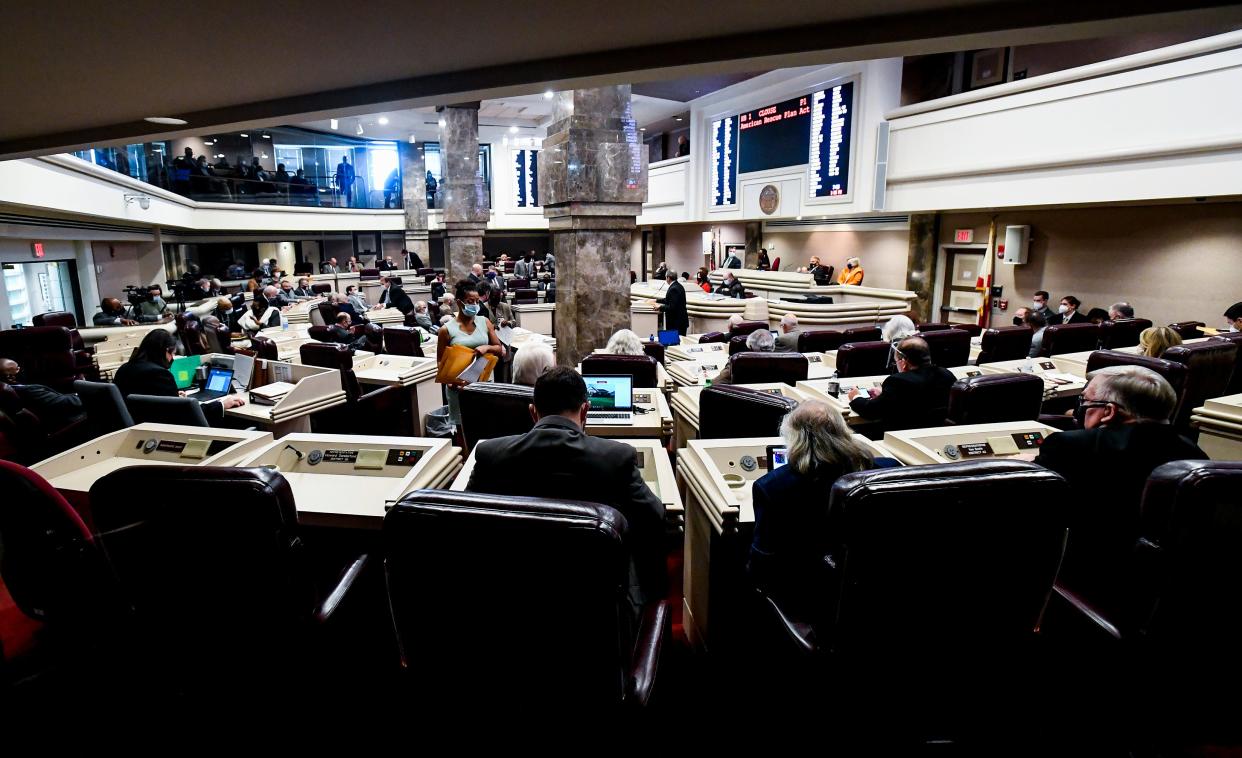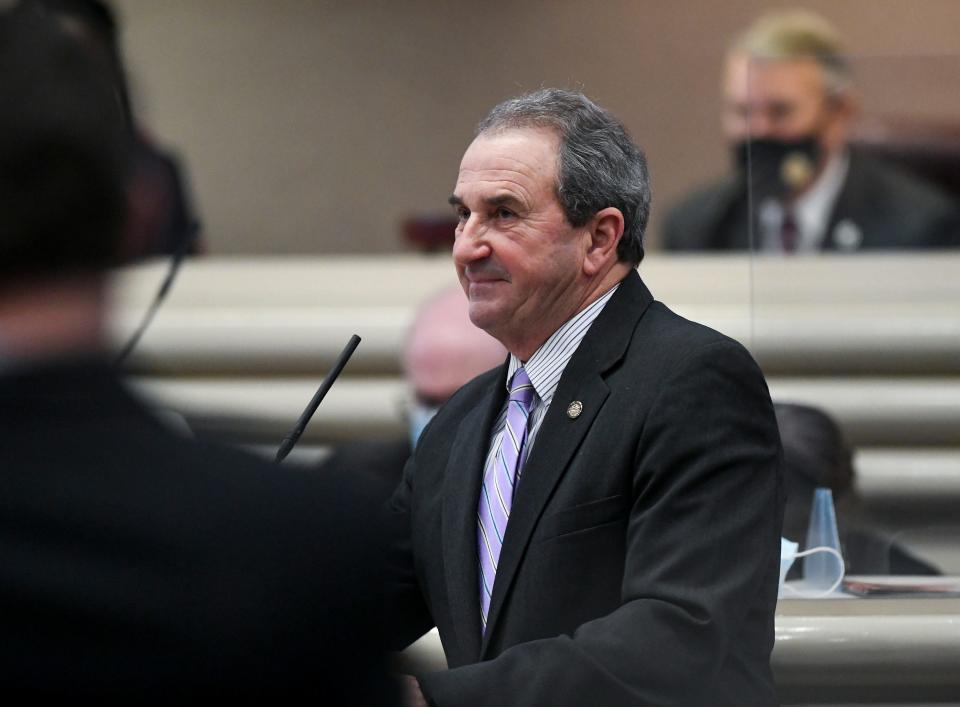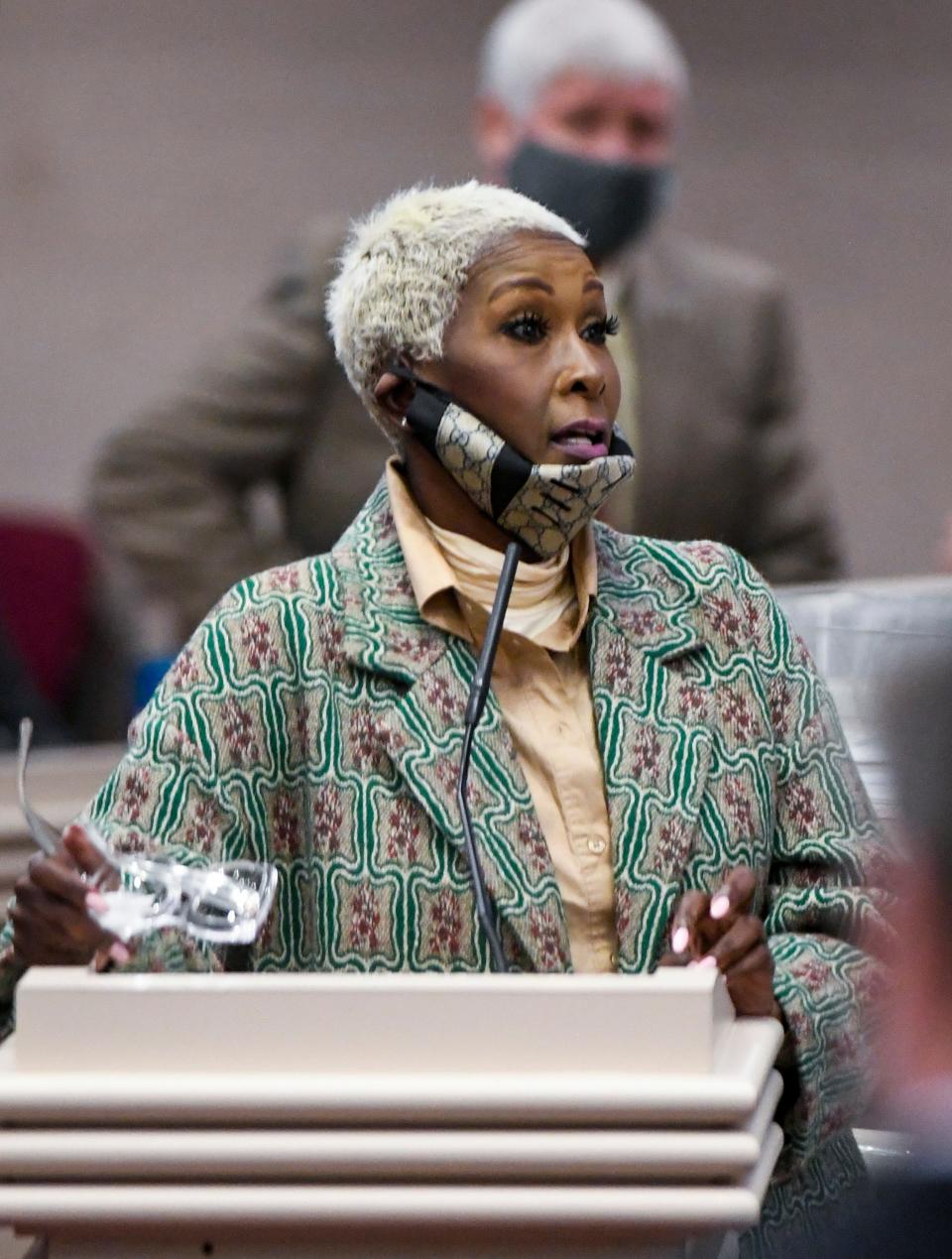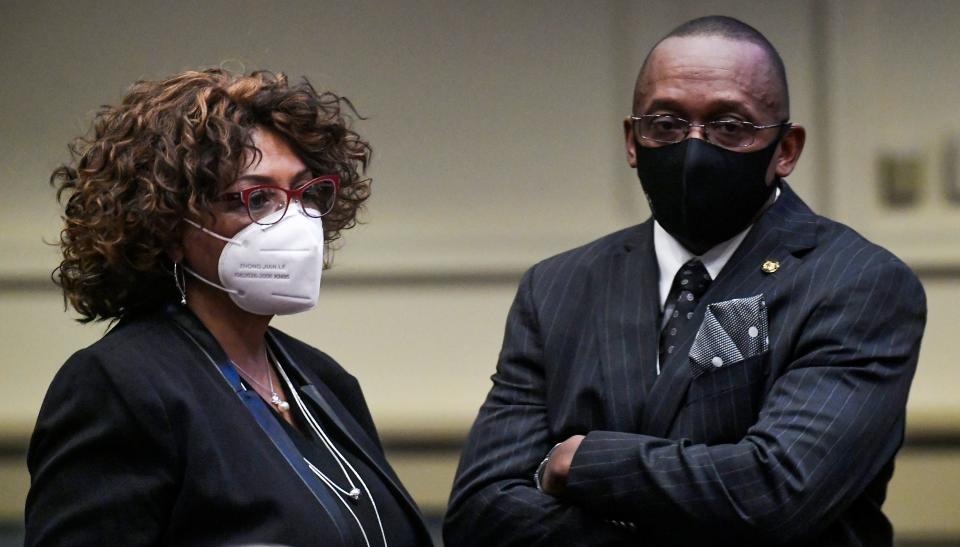Alabama COVID spending plan gets first approval in Alabama Legislature

The Alabama House of Representatives on Tuesday approved a $774 million plan to spend federal COVID relief dollars on broadband, water and sewer projects and health care.
The vote was 100 to 1, with Rep. Juandalynn Givan, D-Birmingham, casting the only no vote. Reps. Mary Moore and John Rogers, both D-Birmingham, abstained. The Alabama Senate approved the legislation on a 26 to 1 vote later in the afternoon. Sen. Sam Givhan, R-Huntsville, cast the sole no vote in the Senate.
"I think (the vote) was a good indication today," said House Ways and Means General Fund chair Steve Clouse, R-Ozark, who sponsored the bill. "We'll see what happens in the Senate with the bill that's identical to the House bill."
Relief money: Special legislative session on COVID relief money opens with pleas for help
COVID: Low ICU capacity continues in Alabama hospitals amid COVID, but River Region has improved
The bills would split most of the money for three areas. Broadband would get $276.9 million (35% of the funding). Water and sewer projects would get $225 million (29%), with the majority of those funds going to high priority projects in areas hit hard by COVID. Health care facilities would get $146.8 million (19%), going to hospitals and assisted living facilities.
Legislators also plan to direct $79.5 million to the state unemployment fund, providing a small tax cut to businesses that pay into the fund. The legislation also includes money for emergency responders, telemedicine, and counties that house state inmates in local jails.

State officials have said the funding for broadband and water and sewer projects won't cover all the needs in the state. A full broadband buildout could cost more than $4 billion, and the Alabama Department of Environmental Management said water and sewer projects could cost many billions of dollars.
But the funding could get a start on those issues, and more money for water and sewer is expected from the infrastructure bill approved by Congress and signed by President Joe Biden last year.
There was some criticism about what was left out of the package. Givan noted during the floor debates that there was no money in the bill for child care or housing assistance.

"We're not addressing the real needs of the of the state of Alabama," she said.
The Senate defeated an amendment from Sen. Linda Coleman-Madison, D-Birmingham, that would have taken $30 million from broadband and put $20 million toward refurbishing housing and $10 million for public transportation.
"We are trying to open up this state," Coleman-Madison said. "We are trying to provide access to jobs. We are trying to provide access to health care."
Republicans said the legislation would provide critical funds to several key areas.
"We can’t fix everything," said Senate Finance and Taxation General Fund committee chair Greg Albritton, R-Atmore, who sponsored the Senate version of the bill. "It’s one step at a time, a little bit here, and a little bit there."
Rep. Arnold Mooney, R-Indian Springs, said the bill attempted to include "everything that could possibly be done" to assist those affected by the pandemic.
"It's extremely important that that $79 million be allocated to the (unemployment) trust fund to help small businesses that have suffered so much through the COVID crisis," he said. "They're all over the state. They're not just in my area."
Democrats also suggested that the toll of the pandemic — nearly 17,000 Alabamians have died from COVID since March 2020 — meant that more money should go to health care or Medicaid expansion. Clouse did not disagree but said health care agencies had received financial support through the CARES Act, which passed in 2020.

"They received a good portion of money, more than $400 million," he said.
But few argued with the essential parameters of the bill. Some senators last week pushed to include money in the current bill for improvements to state parks, but the proposal was ultimately left out.
Democrats made a point of highlighting President Joe Biden's support for the legislation, and congressional Republicans' hostility to it.
"I would truly like to thank the Biden administration for giving us this money to use in Alabama," said Rep. Pebblin Warren, D-Tuskegee.
Those proposals could be considered when the state receives an estimated $1 billion in additional COVID relief money later this year. Several agencies and organizations left out of the current funding plan, including business groups and mental health agencies, last week urged legislators to consider them when that money is divided.
Contact Montgomery Advertiser reporter Brian Lyman at 334-240-0185 or blyman@gannett.com.
This article originally appeared on Montgomery Advertiser: Alabama COVID-19 spending plan gets first approval in state House

